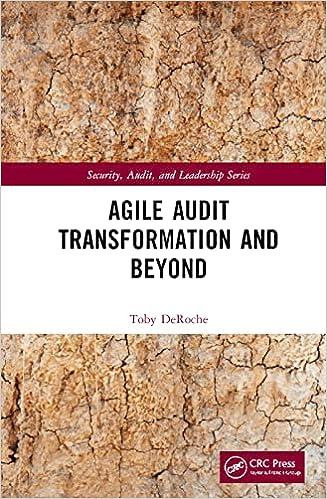Answer the question stated below given the case below it.



Question 1. Harper and Reiman are interested in examining four specific issues: liquidity, profitability, the risk occur- ring from debt financing, and the rate of return the business is providing to them as owners. They also want to have a good sense of the sources and uses of cash flows in the business. Given the firm's recent financial results, as shown above, evaluate the com- pany's financial situation as it relates to the owners' concerns. What advice would you give to Harper and Reiman? CASE 10 Harper & Reiman, LLC Understanding a Firm's Financial Statements Harper & Reiman, LLC. is a consulting firm that caters to developed financial management software that centers on nonprofit organizations. The company is headquartered liquidity analytics and enables nonprofits to shorten cash in Dallas, Texas, and has recently expanded to include an conversion cycles and strengthen liquidity. They gradu- office in Amarillo, Texas, Harper's home town. ally expanded into other services, including sustainable The business was founded in 2000 by Brett Harper business solutions, infrastructure consulting, risk manage- and Anna Reiman, who met in an entrepreneurship classment, and innovation services. in college and discovered that they shared a passion for the company has experienced significant growth, with serving and developing the nonprofit sphere. Following sales approaching S29 million in 2013 far beyond any graduation, they both were employed by J.P. Morgan. thing the owners could have imagined. For one thing, the They frequently worked together on common assign- company distinguished itself in the industry by designing a ments. On a number of occasions, they worked with non- payment system that allows nonprofits to make payments profit organizations whose innovative processes allowed for Harper & Reiman services in seasons when dona- them to "do more with less." The not-for-profits simply tions are the highest. However, it also required Harper & were not able to throw a lot of cash at problems, as many Reimanto diversify its client base so that receivables are large business organizations do, and had to think and act consistently being collected. Essentially, the company has like entrepreneurs if they were to achieve their missions. applied the advice it gives to clients to itself. Harper and Reiman soon came to believe that for profit While the majority of consulting clients are located businesses could learn from the really good nonprofits. near the two regional offices, the firm's software has been After cight years at JP Morgan, Harper and Reiman sold nationwide on a limited basis. Wanting to enter new decided to start their own consulting firm, Harper & Rei- geographical markets, Harper and Reiman are consider man, LLC. At first, they limited their work to financial ing a marketing strategy to increase the firm's national advisory services, knowing that many nonprofits needed visibility. However, before beginning a major expansion. help in managing their financial operations. The company they want to evaluate the firm's financial health Harper & Reiman, LLC Balance Sheets for years ending 2012 and 2013 2012 2013 Changes Assets Current assets: Cash $ 15,500 3.989.000 4,155,000 138,500 105.500 $ 8.403,500 Accounts receivable Inventory Prepaid expenses and deposits Other current assets Total current assets Fixed assets: Gross fixed assets Accumulated depreciation Net fixed assets 5 218.500 4428.000 4,678,000 144.000 105.500 $ 9,574,000 $ 203,000 439,000 523.000 5.500 $1,170.500 $ 7.541,000 (3.822.500) 3.718,500 $ 8,519.000 (4,377,000 4,142,000 $978.000 (554,500) 423,500 Harper & Reiman, LLC (continued) 2012 Changes Other assets TOTAL ASSETS 11,500 $ 12,133,500 2013 1,000 $ 13,717,000 (10.500) $ 1,583,500 $ $ 1,100,000 1,931,000 920,500 3,951,500 3,614,000 7,565,500 Debt (Liabilities) and Equity Current liabilities: Notes payable to bank Accounts payable Accrued expenses Total current liabilities Long-term debt Total debt Stockholders' equity: Common stock Additional paid-in capital Retained earnings Total stockholders equity TOTAL DEBT AND EQUITY 1,192,000 2,238,500 884,000 4,314,500 4,257,000 8,571,500 $ 92,000 307,500 (36,500) $ 363,000 643,000 $ 1,006,000 $ $ $ $ 356,000 498,000 3.714,000 $ 4,568,000 $ 12,133,500 391,500 649,000 4,105,000 $ 5,145,500 $ 13,717,000 $ 35,500 151,000 391,000 $ 577,500 $ 1,583,500 Income Statements for Years Ending 2012 and 2013 2012 Net sales $ 27,069,000 Cost of goods sold (18.880,500) Gross profits $ 8,188,500 Selling and general and administrative expenses 16,805,500) Operating profits $ 1,383,000 Interest expense (481,500) Interest income 5,500 Profits before tax $ 907,000 Income taxes (385,000) Net profits 522.000 Statement of Retained Earnings for years ending 2012 and 2013 2013 $ 28,911,500 (20,524,500) $ 8,387,000 16,953,000) $ 1434,000 (535,500) 10,000 $ 908,500 (1377,000) $ 531,500 2012 Beginning retained earnings Net profits Dividends Ending retained earnings $3.298,000 522,000 (106,000 $ 3,714,000 2013 53,714,000 531,500 (140.500) $ 4,105,000 Statement of Cash Flows for years ending 2012 and 2013 2012 2013 $ $ 522,000 564,500 $ 1,086,500 $ (464,000) 531,500 554,500 1,086,000 (439,000) $ $ (572,000) 68,500 1503,500) (19,000) 87,500 187,500 (523,000) 307,500 (215,500) (5,500) (36,500) 389,500 $ $ (861,500) $ (978,000) 10,500 (967,500) $ (861,500) $ Operating activities: Net profits Depreciation Profits before depreciation Increase in accounts receivable Payments for inventory: Increase in inventory Increase in accounts payable Total payment for inventory Increase in prepaid expenses Increase (decrease) in accrued expenses Cash flows from operations Investing activities: Increase in gross fixed assets Decrease increase) in other assets Cash flows from investing activities Financing activities: Increase in notes payable Increase (decrease) in long-term debt Issued common stock Cash dividends paid Cash flows from financing activities Net change in cash Beginning cash Ending cash Industry norms: Current ratio Return on assets Operating profit margin Total asset turnover Debt ratio Return on common equity $ $ 625,000 [112,500) 77,500 (81,000) 509,000 (165,000) 180,500 15,500 92,000 643,000 186,500 (140,500) 781,000 203,000 15,500 218.500 $ $ $ $ $ 22 12.6% 6.3% 2.00 40.0% 15.0%










